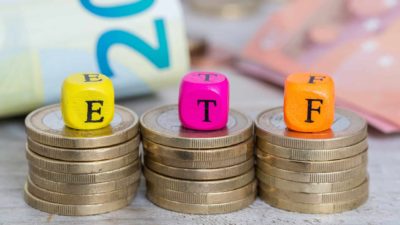ASX dividend shares provide a valuable source of passive income to millions of Australians.
Even if you're not yet investing in shares directly, your superannuation fund most likely benefits from holding income stocks.
Retirees are often especially dependent on the second income they get from regular dividend payments.
You'll also find a preference among many investors, old and young alike, for ASX dividend shares that come with franking credits.
When you receive a fully franked dividend, you get credit for the 30% in tax the company has already paid on the profits it's sharing out with investors. That can significantly lower your tax burden. And some investors, particularly retirees, can claim a refund if their own tax rate is below 30%.
The idea is to avoid double taxation. And it can make a big difference in the passive income you get to keep in your pocket at the end of each financial year.
But the Albanese government is concerned about the potential misuse of franking credits when it comes to company share buybacks and capital raisings.
Labor has proposed two significant measures that could negate many of the franking credits paid by ASX dividend shares to investors. Labor estimates those measures could add $600 million to the budget over four years.
But the proposals aren't sitting well with many companies and investors.
Reduced incentive for ASX dividend shares to create franking credits
The Australian Shareholders Association (ASA) is among the organisations that are expressing alarm over the government's proposed changes.
According to the ASA:
Many Australian shareholders and ASA members rely on refunds of excess franking credits to support their retirement and fund their daily living expenses.
Our members are concerned the government could break their election promise not to make major changes to superannuation and franking credits in this term.
The ASA also cited concerns over the potential impact on investors in exchange-traded funds (ETFs), "especially retail shareholders, and on the companies themselves".
The ASA said the legislation would "reduce the incentive for companies to create franking credits if they are likely to be unable to be distributed".
Smaller companies could take a bigger hit
Smaller companies that might be tomorrow's go-to ASX dividend shares could also be unfairly impacted by the government's proposed franking credit shakeup.
As The Australian Financial Review reports, Naos Asset Management's managing director Sebastian Evans noted that smaller companies are often reinvesting in their growth rather than distributing profits to shareholders via dividends. But he said any franking credits attached to their future dividend payouts could be at risk, even if linked to legitimate capital raisings.
"Small to mid-cap Australian companies… are likely to be unfairly impacted," he said.
According to Evans:
These companies are less likely to have an 'established practice' of paying regular dividends, and the current wording is so broad that any capital raising, at any point in time, could potentially prevent the payment of future franked distributions.
A likely impact will be that companies turn to debt instead of equity issuance as part of their capital management strategy. This will significantly increase balance sheet risk across a large cohort of smaller companies.
The Australian Banking Association (quoted by the AFR) highlighted the uncertainty that the proposed legislation creates for ASX dividend shares and their investors.
"The current scope of this bill creates some uncertainty whether certain capital raisings could be deemed unfrankable despite those capital raisings not being intended to fund any dividend or distribution," ABA head of economic policy Emma Penzo said.
The strongest words we've yet heard against the proposed changes to the franking credits paid out by ASX dividend shares come from New South Wales Liberal senator Andrew Bragg.
Pulling no punches, Bragg said (courtesy of The Australian):
Today's reporting on Labor's endless attack on franking credits highlights their desperate commitment to kill the system of dividend imputation in Australia… If legislated, Labor's warped changes will destroy dividend imputation and investment in Australia.
A range of tax professionals, investors, and businesses are addressing the Senate economics committee on the proposed changes today.









